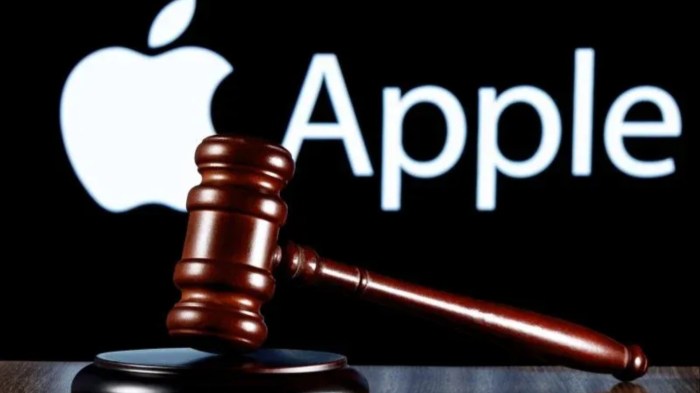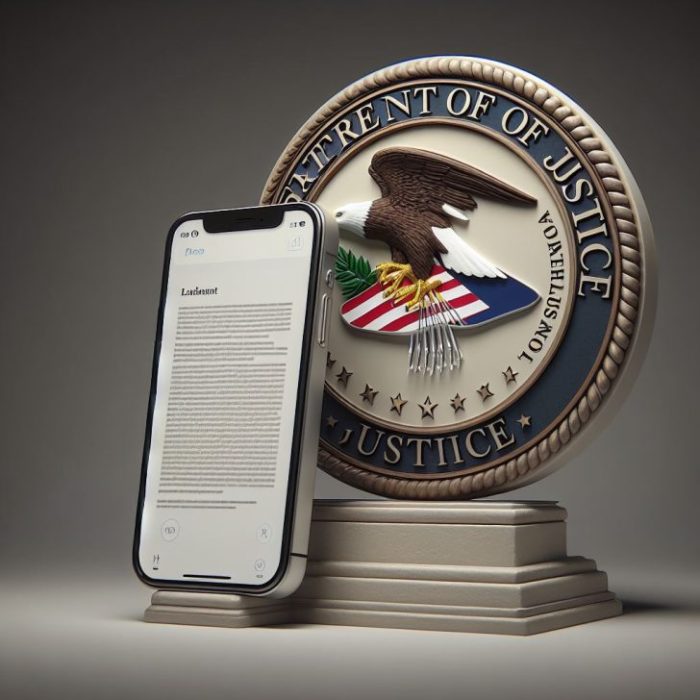The Lawsuit’s Background: Apple Lawsuit Slow Down Iphones
The lawsuit against Apple, alleging that the company intentionally slowed down older iPhones to encourage users to upgrade to newer models, has been a major controversy in the tech world. This lawsuit, filed by numerous iPhone users, has garnered significant attention, sparking debates about consumer rights, planned obsolescence, and the ethics of software updates.
The Allegations
The lawsuit alleges that Apple deliberately slowed down older iPhone models through software updates, specifically targeting devices with aging batteries. The plaintiffs argue that Apple’s actions were deceptive and violated consumer trust. They claim that Apple did not disclose its intention to slow down iPhones, leading users to believe their devices were simply aging or experiencing performance issues. This, they argue, ultimately pressured users to upgrade to newer, more expensive iPhones.
The Affected iPhone Models and Timeline
The lawsuit focuses on several iPhone models, including the iPhone 6, iPhone 6 Plus, iPhone 6s, iPhone 6s Plus, iPhone 7, iPhone 7 Plus, and iPhone SE. These models were affected by software updates that introduced a battery management feature designed to prevent unexpected shutdowns. However, this feature, according to the plaintiffs, also resulted in a noticeable performance slowdown.
The timeline of events began in 2017 when Apple acknowledged slowing down older iPhones with degraded batteries. The company initially stated that the slowdown was necessary to prevent unexpected shutdowns, but faced criticism for not being transparent about the feature. Following the public outcry, Apple offered battery replacements at a discounted price, and also updated its software to provide users with more information about their battery health.
The Legal Arguments
The plaintiffs in the lawsuit argue that Apple’s actions constitute a breach of contract, as they did not explicitly disclose the performance impact of the battery management feature. They also argue that Apple engaged in unfair competition by intentionally slowing down older iPhones to promote the sale of newer models.
Apple, on the other hand, maintains that it acted in the best interest of its customers by implementing the battery management feature. They argue that the feature was designed to prevent unexpected shutdowns and enhance the user experience. They also argue that they were transparent about the feature, albeit not initially, and offered solutions to address customer concerns.
Apple’s Response and Arguments
Apple, faced with the lawsuit, didn’t shy away from addressing the allegations. The company issued public statements and engaged in legal battles to defend its actions. Apple’s core argument revolved around the notion that slowing down iPhones was a necessary measure to enhance battery performance and ensure user safety.
Apple’s Rationale for Slowing Down iPhones
Apple’s stance was that the performance throttling was not a deliberate attempt to deceive customers or force them to upgrade. Instead, the company argued that it was a necessary step to prevent unexpected shutdowns and ensure the longevity of older iPhones.
“Our goal is to deliver the best possible experience for our customers, and that includes ensuring that their devices are safe and reliable. We have found that in some cases, the lithium-ion batteries in older iPhones can degrade over time, which can lead to unexpected shutdowns. To prevent this, we implemented a feature that manages performance to smooth out these peaks and prevent unexpected shutdowns.”
Apple’s argument was based on the inherent limitations of lithium-ion batteries, which are prone to degradation over time. As the battery ages, its capacity decreases, leading to fluctuations in power output. This, according to Apple, could result in unexpected shutdowns, potentially causing data loss or device malfunction.
Apple emphasized that the performance throttling was not a hidden practice but a feature designed to protect users from these issues. The company claimed that the throttling was applied only when necessary and that it was transparent about the feature in its software updates.
Comparing Apple’s Arguments with the Lawsuit’s Allegations
The lawsuit, however, alleged that Apple deliberately slowed down iPhones without informing users. The plaintiffs argued that Apple’s actions constituted a deceptive business practice, as it concealed the performance throttling and encouraged users to upgrade their devices. They claimed that Apple’s motive was to boost sales by creating a perceived need for newer iPhones.
Apple countered these allegations by highlighting the benefits of performance throttling for user safety and device longevity. The company argued that the feature was not designed to deceive or mislead customers, but rather to provide a better user experience. Apple also emphasized its transparency in communicating the feature through software updates and online resources.
The lawsuit and Apple’s defense presented two contrasting perspectives on the issue of iPhone performance throttling. While the plaintiffs argued that Apple’s actions were deceptive and aimed at maximizing profits, Apple maintained that the throttling was a necessary measure to protect users and extend the lifespan of their devices.
Impact on iPhone Users
The lawsuit alleging that Apple intentionally slowed down older iPhones to extend their lifespan has had a significant impact on iPhone users. While Apple initially defended its actions, the lawsuit brought to light concerns about device performance, longevity, and the ethical implications of Apple’s actions.
User Concerns about Device Performance and Longevity
The lawsuit raised concerns among iPhone users about the performance and longevity of their devices. Many users reported experiencing slowdowns on their iPhones, particularly after updating to newer iOS versions. The lawsuit alleged that these slowdowns were intentional, designed to prevent older iPhones from becoming unusable due to aging batteries. However, users argued that this practice was deceptive and unfair, as it effectively shortened the lifespan of their devices.
Changes in User Behavior and Perception of Apple Products
Following the lawsuit, some iPhone users reported changes in their behavior and perception of Apple products. Some users became more cautious about updating their iPhones to the latest iOS versions, fearing that the update might slow down their devices. Others expressed dissatisfaction with Apple’s lack of transparency regarding its software updates and the potential impact on device performance. The lawsuit also led some users to question Apple’s commitment to user trust and ethical practices.
Ethical Implications of Apple’s Actions
The lawsuit raised ethical concerns about Apple’s actions, particularly regarding user trust and transparency. The allegation that Apple intentionally slowed down iPhones without informing users was seen by many as a violation of trust. Critics argued that Apple had a responsibility to be transparent about its software updates and their potential impact on device performance. The lawsuit also highlighted the importance of ethical considerations in the design and development of technology, particularly when it comes to user experience and device longevity.
Legal and Regulatory Implications
The lawsuit alleging Apple intentionally slows down older iPhones raises significant legal and regulatory implications. This case could set a precedent for how companies handle software updates and their impact on device performance. It also highlights the complex relationship between consumer rights, corporate practices, and the evolving landscape of technology.
Potential Legal Outcomes
The outcome of the lawsuit could significantly impact Apple’s future practices and set a precedent for how companies handle software updates. The lawsuit’s success depends on proving Apple’s intent to slow down iPhones to encourage users to upgrade. Previous lawsuits against Apple regarding iPhone performance have been dismissed due to the lack of evidence showing deliberate intent to harm users. However, this lawsuit could be different as it involves a larger number of plaintiffs and stronger evidence of Apple’s deliberate actions.
Impact on Apple’s Future Product Development and Business Practices
If the lawsuit is successful, Apple may face significant financial penalties and be required to change its software update policies. This could include:
- Increased transparency about the impact of software updates on device performance.
- More robust testing and communication about the effects of software updates.
- A shift in the company’s strategy towards offering longer software support for older iPhones.
The lawsuit could also lead to increased scrutiny from regulatory bodies like the Federal Trade Commission (FTC) and the European Union. The FTC has already investigated Apple’s battery management practices and could launch a full-scale investigation if the lawsuit is successful. This could result in stricter regulations for software updates and device performance.
Implications for the Tech Industry and Consumer Rights
The lawsuit has broader implications for the tech industry and consumer rights. It raises questions about the ethics of planned obsolescence, where companies deliberately design products to become obsolete to encourage consumers to upgrade. The lawsuit could also lead to increased consumer awareness about the impact of software updates on device performance and the potential for companies to manipulate these updates for their own benefit.
The case could also contribute to a more robust legal framework for protecting consumer rights in the digital age. This could include:
- Enhanced consumer protection laws regarding software updates and device performance.
- Increased transparency and accountability from tech companies regarding software updates.
- Greater emphasis on the right to repair and the ability of consumers to repair their devices.
Technological Considerations
The lawsuit alleging that Apple intentionally slowed down older iPhones to extend battery life raises significant technological considerations. Understanding the intricate interplay between battery health, performance optimization, and user experience is crucial to grasp the complexities of this issue.
iPhone Performance and Battery Management
Apple’s iOS operating system incorporates sophisticated battery management techniques to optimize device performance and extend battery life. These techniques involve dynamically adjusting processor speeds and other system parameters based on the battery’s health and charge level.
Relationship Between Battery Health, Performance Optimization, and User Experience
As lithium-ion batteries age, their capacity to hold a charge decreases, leading to shorter battery life. To mitigate the impact of battery degradation, Apple’s performance optimization algorithms may throttle processor speeds to conserve power. This approach can lead to perceived performance slowdowns, especially during demanding tasks. However, it also helps to prevent unexpected shutdowns, ensuring a more consistent user experience.
Potential Benefits and Drawbacks of Software Updates that Impact iPhone Performance, Apple lawsuit slow down iphones
Software updates can introduce new features, improve security, and optimize device performance. However, they can also introduce unintended consequences, such as performance slowdowns. While performance optimization algorithms are designed to improve user experience, they can sometimes be perceived as detrimental.
Apple lawsuit slow down iphones – The Apple lawsuit concerning iPhone performance is a complex case with far-reaching implications. It highlights the delicate balance between user experience, device longevity, and business practices. The lawsuit’s outcome could significantly impact Apple’s future product development and business strategies, potentially setting a precedent for how tech companies handle software updates and battery management in the future. It also raises important questions about consumer rights, transparency, and the ethical considerations involved in managing the lifecycle of electronic devices.
The Apple lawsuit saga might be slowing down iPhone sales, but it seems like some companies are always ready to capitalize on the situation. Just look at how Samsung’s Note 7 sales resumed in Europe on October 28th, note 7 sales resume europe october 28 , after a dramatic recall. While Apple’s legal battles continue, Samsung’s swift recovery is a testament to their resilience and the power of a good comeback story.
 Standi Techno News
Standi Techno News

